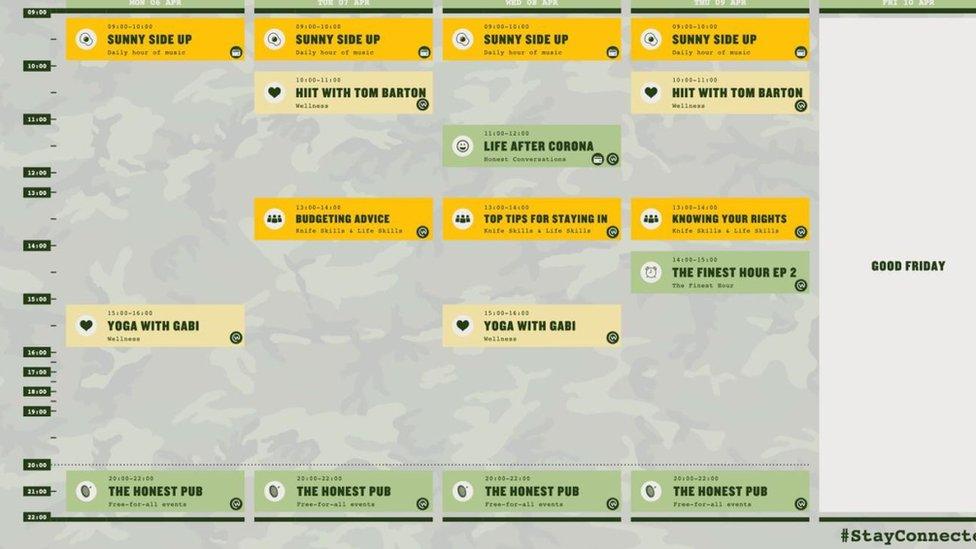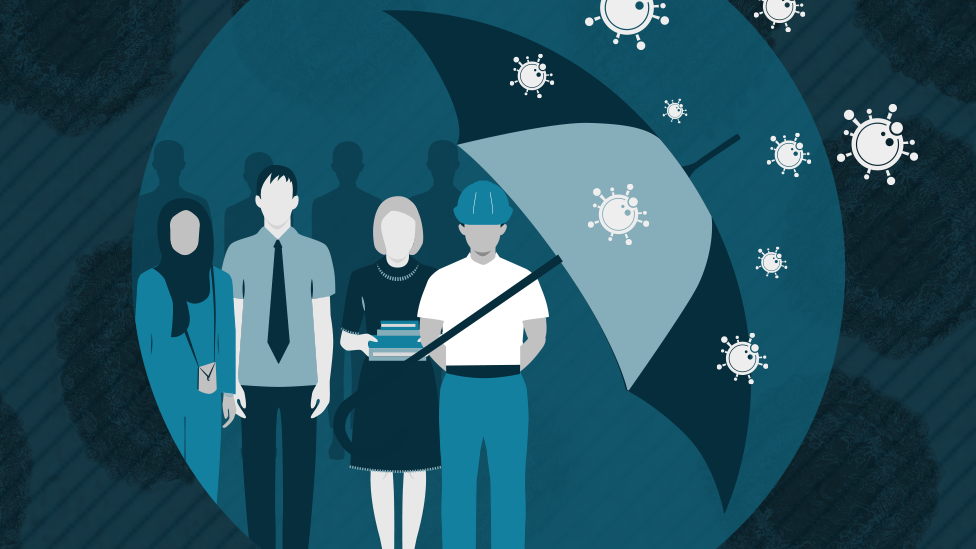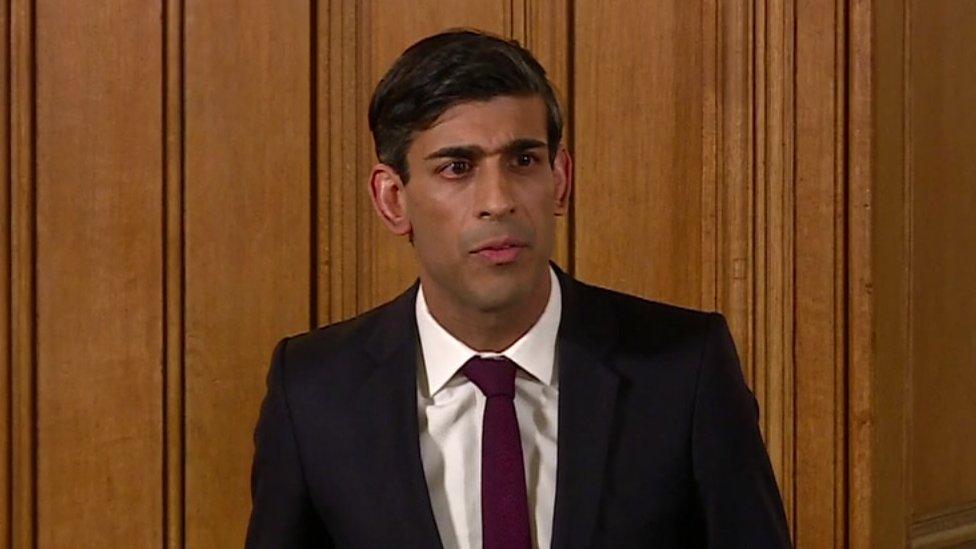Coronavirus: What’s life like when you're on furlough?
- Published
Coronavirus: Three perspectives on furloughing
"It really is a bit of a sticking plaster. Yes, you've got 80% of your income, but we don't know how long that's going to last. Although I'm grateful to be in this position - it's unsettling."
Olivia Webb works for a recruitment firm. She was put on furlough after her company lost business almost overnight as a result of the coronavirus lockdown.
The government pays 80% of her monthly salary (up to £2,500) and she can't work for her company in the meantime.
It's not known exactly how many people are in Olivia's position, because the government's online portal for businesses to register their furloughed workers does not open until the end of April.
But anecdotally, the numbers are significant and growing. According to the Chartered Institute for Personnel and Development, more than half of UK employers are exploring the Coronavirus Job Retention Scheme., external
'I feel terribly guilty'
Natalie Weaving is co-founder of a marketing agency. She volunteered for furlough because she knew not paying her salary would help the business in the long term.
"I feel terribly guilty for being at home, about being able to home-school without distraction," she says. "But I know that because some work has stopped that we don't need a full cohort of staff."

Olivia Webb was furloughed at the end of March
"I still have my alarm on as if I'm going to work. I try and set myself a couple of goals each day to complete something, a course module for example. I also do a few things that bring me joy, like knitting."
Like Natalie, Olivia is trying to make the best of her time off, taking part in online training courses.
But losing their role in a business can take its toll on people's mental health.
She says she misses work, the daily conference calls and finds it hard not being around people.

The Honest Burgers #stayconnected plan
Human resources expert Michaela Gartside believes keeping in touch with people while they are off work is vital.
"You have to remember they're sitting at home waiting for the next update, which they hope is: 'Come back to work'," she says.
Restaurant chain Honest Burgers has put in place a "stay connected" timetable for the 700 staff they have furloughed.
Many of their staff are young, live alone and have family abroad, so this is to "tackle some of the boredom but more importantly help with their mental wellbeing as well as their physical wellbeing", according to co-founder Philip Eeles.
Being at home for the kids
Many employees want the time off to look after their children now that nurseries and schools are closed.

Claire Hastie is recovering from Covid-19 and caring for three children
Claire Hastie is slowly recovering from Covid-19.
A single mum of three, she was relieved when she volunteered to be put on furlough and her firm accepted the request.
"You don't want to feel the business can manage without you, but I need to see my children and concentrate on getting better," she says.
"The company is being amazing towards me, it has reduced me to tears."
This is allowed within the latest government guidelines, according to Diane Gilhooley, global head at the law firm Eversheds Sutherland, who points out "furloughing people for Covid-19 related caring responsibilities starts to make it look more like an income protection scheme rather than a redundancy avoidance scheme".

EASY STEPS: How to keep safe
A SIMPLE GUIDE: What are the symptoms?
CONTAINMENT: What it means to self-isolate
HEALTH MYTHS: The fake advice you should ignore
MAPS AND CHARTS: Visual guide to the outbreak

Though employers around the country have embraced furloughing with enthusiasm, the speed at which it has been introduced has raised a number of issues.
Some firms would like to see more flexibility, so they could make some team members part-time, with the government topping up their salary.

Like many bosses, Mick Collins is waiting for the furlough portal to open
Other firms would just like more information.
Mick Collins runs Secure Archive Solutions outside Manchester which stores and shreds legal documents.
He has furloughed four members of staff, leaving him and his wife to run the business.
But they feel rather in the dark by gaps in information, hoping - he says - that they're doing things by the book.
"We cannot do anything concrete until the government website for logging staff details is up and running. Our main thing is keeping the records bang on."
What's next?
Employer or employee, it's the not knowing what might come after the pandemic subsides that is worrying many.
As Olivia puts it: "Being on furlough is better than losing my job. But we don't know when recruitment will pick up - when confidence will pick up."
Natalie says she has to believe everything will go back to business as usual. "We know things will be different but I think we will learn good practices by having to adapt to this environment."
"It is strange times and anyone who's on furlough needs to hold on to the fact that they haven't been laid off and the company is trying to do everything they can to make sure they're not."
- Published30 September 2021

- Published5 April 2020

- Published20 March 2020
